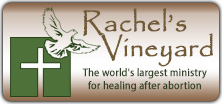January 21, 2022
Feast of St. Agnes
My dear People of God,
Greetings in our Lord!
 Recently, in response to a request of the Holy See, the dioceses of the world entered what is called a synodal process. The purpose is to offer input from the faithful for the Synod on Synodality in 2023. Quoting from the webpage of the United States Conference of Catholic Bishops, "The Synod on Synodality is a two-year process of listening and dialogue."
Recently, in response to a request of the Holy See, the dioceses of the world entered what is called a synodal process. The purpose is to offer input from the faithful for the Synod on Synodality in 2023. Quoting from the webpage of the United States Conference of Catholic Bishops, "The Synod on Synodality is a two-year process of listening and dialogue."
Pope Francis has invited "the entire Church to reflect on a theme that is decisive for its life and mission: 'It is precisely this path of synodality which God expects of the Church of the third millennium."' What does "synodality" hope to accomplish? The statement continues, "[T]he Church will be able to learn through Her experience which processes can help Her to live communion, to achieve participation, to open Herself to mission."
To participate in this effort, I appointed Monsignor Daniel Torres to coordinate this "listening and dialogue" for the Diocese of Lake Charles. He provided guidance to the pastors to assist the faithful in this consultation. The feedback from this effort will be compiled and forwarded to the USCCB and subsequently to the Holy See for their purposes.
"Listening and dialogue" have been a part of the life of this diocese from the beginning. Every parish has an active Pastoral Council and separate Finance Council to advise and assist the pastor on the pastoral ministry and administration of temporal goods respectively. The Diocese, as well, has a duly constituted Diocesan Pastoral Council and Finance Council, which meet regularly and are composed mostly of lay men and women, their names listed in the current Diocesan Directory. This is not to mention the Presbyteral Council and College of Consultors, comprised of duly elected and appointed priests, who advise and assist me in the administration of the Diocese, or the lay Advisory Councils of our Catholic schools. Whether Catholic Charities or Family Life, Religious Education or Diocesan Building Commission, Safe Environment or Hispanic Ministry — all these diocesan offices and ministries maintain advisory councils, boards, committees, or consultative groups that offer feedback, advice, direction, and conversation.
I would offer this brief observation. Any "listening and dialogue" benefit from perspective. The true perspective for any Christian is our Lord Jesus Christ. For the Christian, the imitation of Christ is tantamount to being a Christian (cf. Ephesians 5:1-2). This means that the Christian strives to live his or her life in conformity to the teachings of Jesus Christ. "If you love me," our Lord says in the Gospel of St. John, "you will keep my commandments" (John 14: 15). The commandments are not optional. Neither are they recommendations. They are fundamental. Following these commandments in imitation of Christ is not easy. It is, in fact, difficult, but not impossible. With God's Grace and a willingness to cooperate with God's Will, the Christian can witness a transformation in his or her life, one that leads to deeper and greater happiness as the Christian's life is more conformed to the teachings of Christ Himself.
We must ask ourselves the question, "How did Jesus Christ 'listen' and 'dialogue'?" Let us read the Gospels without selectivity. He certainly listens to the appeal of the people, especially the sinners, the blind, the deaf, the lame, and the poor. Then, he acts in their favor. There are times also where those in need say nothing at all, and He acts to heal or assist, as when he forgives the sins of those who have not asked (cf. Mark 2:5) or raises to life the son of the widow of Naim in the funeral procession (cf. Luke 7:11-15). And "dialogue"? From an early age in the Temple, He does this. Later in life He challenges the Pharisees and Sadducees, or they challenge Him, and He dialogues. He also dialogues with Pontius Pilate (cf. John 18:33-38) and with Nicodemus (cf. John 3: 1-15). Sometimes he chooses not to dialogue, as when he expels the money changers from the Temple (cf. John 2: 13ff.; Luke 19: 45ff.) or issues severe condemnations against the religious leaders (cf. Matthew 23: 13ff.). What strikes me in all these instances is His demeanor. He does not approach any of these conversations or actions as would a community organizer, politician, or social worker. Rather He assumes a position that his listeners immediately recognize as authoritative (e.g. Luke 4:22; John 7:46). He is the Redeemer, teaching, admonishing, forgiving, and acting as the arbiter of right and wrong. He is interested in the salvation of those whom He addresses.
Jesus Christ left us His Church to convey this message of salvation. As St. Paul pointed out, the Church is the body of Christ. "[H]e put all things beneath his feet and gave him as head over all things to the church, which is his body, the fullness of the one who fills all things in every way'' (Ephesians 1 :22-23; cf. Romans 12: 15; I Corinthians 12:27-28; Ephesians 5:23, 29-30). The Church has always understood herself in this way. Even unto our own age, Lumen Gentium (n. 48, § 2) of the Second Vatican Council spoke of the Church as the "universal sacrament of salvation." The Church is, then, a teacher and a mother precisely because She is to represent and embody Christ in the world. She accompanies the believer, yes, with an accompaniment that identifies the believer's intimate union with Her.
Is the Church filled only with perfect creatures? Of course not, because the Church on earth is both human and Divine. Her Divine Master calls all in the Church to perfection. Some accept; others do not; some reject; still others struggle. For this reason, the Church must always preach the need for repentance. As St. John will state clearly, "If we say, 'We are without sin,' we deceive ourselves, and the truth is not in us. If we acknowledge our sins, he is faithful and just and will forgive our sins and cleanse us from every wrongdoing'' (I John 1:8-9). There is always hope.
If we are to listen, then we must listen to Christ first. In this way we listen better to others. If we are to dialogue, then we must dialogue with Christ first. Prayer with Jesus Christ is always the fruitful prelude to sharing with others. No meeting or conversation, however well-intended, will accomplish anything of value if it does not begin and end with Jesus Christ, who is our way, truth, and life. All our synods, councils, committees, and commissions are not ends in themselves. They are means to what must be our only end — our Lord and Savior, Jesus Christ.
I leave you with these reflections. May our efforts yield some harvest, for by their fruits, we will know them (cf. Matthew 7:16). Extending my blessings to you and your families, I remain
Devotedly yours in our Lord,

+Glen John Provost
Bishop of Lake Charles
















